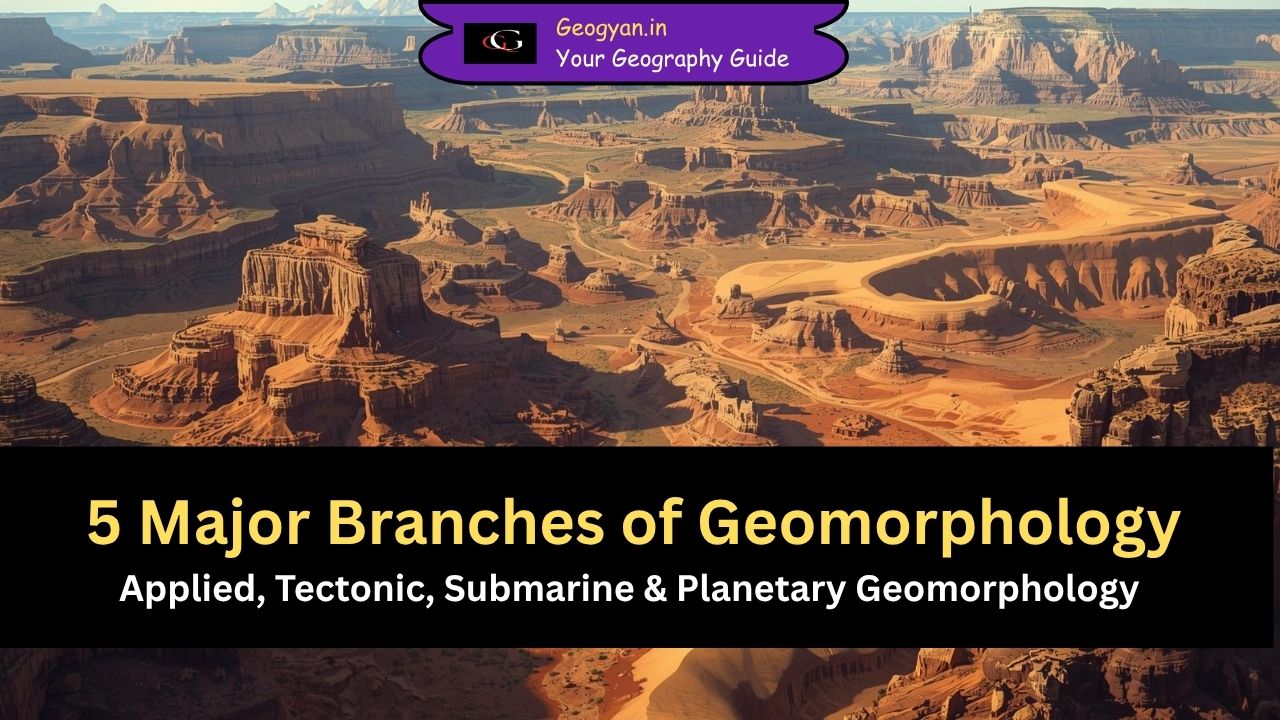Estimated reading time: 4 minutes
Table of contents
German Geographic Thoughts
The development of modern scientific geography owes much to German geographers such as Humboldt, Ritter, Ratzel, Ritter, Richthofen, and Hettner. These German geographers have articulated and developed key geographic theories and concepts, including Scientific Geography, Systematic Geography, Regional Geography, Determinism, Environmental Science, Landscape, Geopolitics, and the Principle of Situation. This blog post provides a concise overview of these concepts.
Scientific Geography
The foundation of Scientific Geography was laid in the 18th century by Reinhold Forster and his son George Forster. They systematically observed the geographical facts of various regions of the Earth in a scientific manner. After collecting facts and data, they compared, classified, and analyzed them, ultimately drawing generalizations. Moving forward, in the 19th century, Alexander von Humboldt and Carl Ritter applied scientific methods to geographical studies, providing a significant contribution to shaping geography as a true science.
Systematic Geography
Alexander von Humboldt, the founder of modern geography, was a pioneer in Systematic Geography. In his famous work “Kosmos,” he described the world using a systematic approach. This remains an exemplary case of Systematic Geography. Humboldt’s approach was also embraced by his predecessors, including Reinhold Forster, George Forster, and Kant, who applied systematic methods to study the entire Earth or specific study areas, organizing geographical facts in a systematic, sequential manner.
Regional Geography
The early development of Regional Geography took place in Germany. Ritter’s renowned series “Erdkunde” (Geography) contains nineteen volumes that provide regional descriptions of various regions and countries in Asia and Africa. This series stands as the first significant work in Regional Geography. Richthofen, for instance, wrote about the regional geography of China, while Hettner published “Regional Geography of Europe” in 1907. Subsequently, many German geographers conducted regional studies of different parts of the world. Notable names include Siegfried Passarge, Phillipsen, Hägerstrand, Sauer, and Latsch, among others.
Determinism or Environmental Determinism
Determinism, specifically environmental determinism, refers to the idea that human life, culture, and activities are primarily shaped by the natural environment. German geographers, like Ratzel, were proponents of this theory, suggesting that nature plays a significant role in determining how societies develop. While most geographers considered physical elements essential, Ratzel and others were strong supporters of environmental determinism, emphasizing the influence of the natural environment on human societies.
Chorological Science
Chorological science, also known as chorology, is a subfield of geography that focuses on the analysis of the spatial arrangement of geographical areas and their relationships with other organized sciences. German geographers like Ratzel and Häntzschel are considered pioneers of this concept, and they emphasized the significance of studying the Earth’s regions in a spatial context.
Landschaft or Landscape
The term “Landschaft” is a fundamental geographical concept in Germany. According to German geographers, geography is the study of “Landschaft,” which can be translated as “landscape.” Landschaft encompasses both natural and cultural aspects of geographic regions. It goes beyond the English term “landscape” and implies the idea of “regions as they appear” or “regions with a certain appearance.” German geographers have explored the concept in various contexts, making its exact meaning somewhat less precise.
Geopolitics
Geopolitical thought originated in Germany during the early 20th century. It involves the study of how geographic factors influence international politics, specifically concerning the political systems of different regions on Earth. Geopolitics initially had connections with notions of race superiority and the need for living space (“Lebensraum”). It played a significant role in the policies of Nazi Germany during World War II. However, the concept has evolved and is now viewed differently.
Location Theories
Location theories were developed by German economists and economic geographers to explain the spatial distribution of various economic activities such as agriculture, industry, and services. Notable theories include Von Thünen’s Agricultural Location Theory, Christaller’s Central Place Theory, and Weber’s Industrial Location Theory. These theories analyze how factors like transportation costs, labor, and economies of scale influence the optimal location of various economic activities.
These concepts represent significant contributions to the field of geography and have had a lasting impact on how we understand the relationship between the environment, human societies, and economic activities.
Conclusion
In this blog post, we’ve explored the evolution of German geographic thought, highlighting the contributions of prominent geographers to the development of Scientific Geography, Systematic Geography, and Regional Geography. These foundational ideas have shaped modern geography and continue to influence the field today.






























One Response